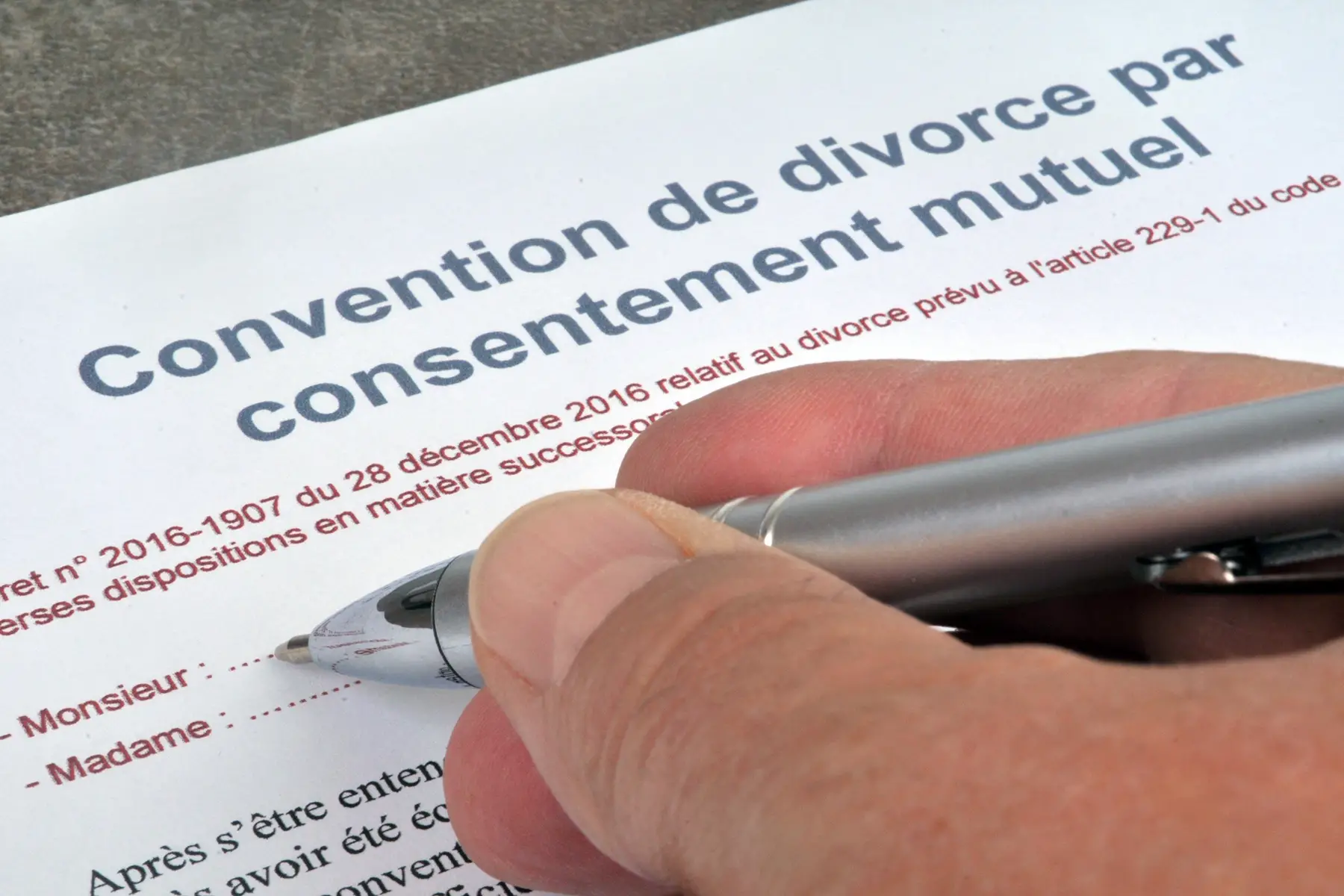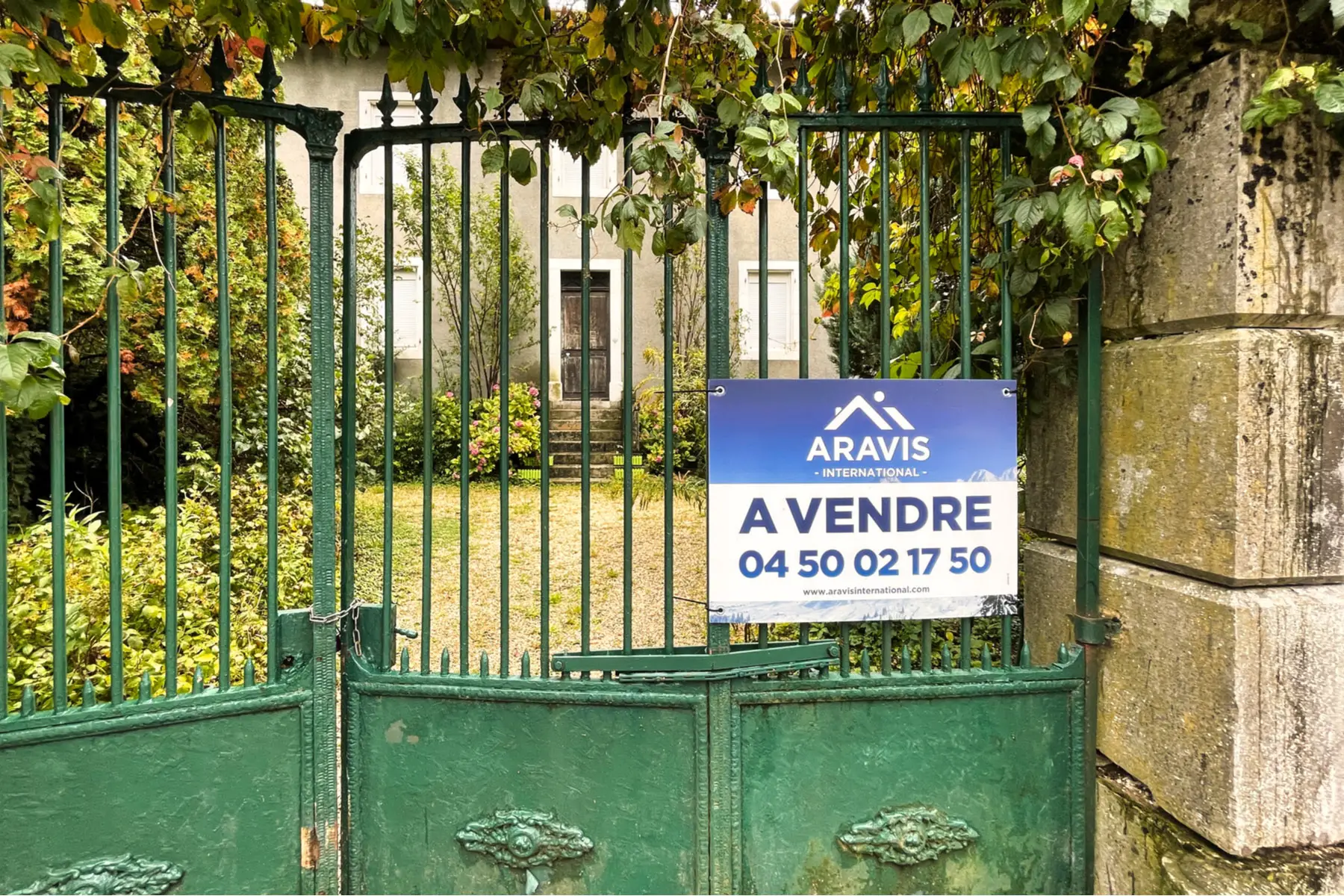There is a lot to consider when getting a divorce in France. For example, if you or your spouse is a French citizen or resident, France is likely where you’ll need to apply for divorce. Although this process is rarely emotionally smooth, recent changes in French legislation have at least made the administrative process relatively easy. Indeed, you needn’t appear in court nor spend a small fortune. Read on to find an outline of what you need to know, including:
lingoking
Do you need help translating documents? Make sure all your legal proceedings go smoothly by using lingoking for all your translation needs. Whichever papers you need translating, lingoking's network of professional translators can help. Order online 24/7 and take some of the stress out of your legal procedure.
An overview of divorce in France
The divorce rate in France is in line with the European Union average – according to the latest OECD data, it stands at 1.9 divorces per 1000 people. Moreover, much like in other OECD countries, about 18% of French weddings involve a divorcee. These rates have been relatively steady in recent decades. However, if we take into account the fact that marriage itself is increasingly unpopular in France, we see that the proportion that ends in divorce has risen.

In terms of exact numbers, a total of 128,043 divorces were legally pronounced in 2016 in France compared to 44,738 in 1972. As of 2017, you can end your marriage by mutual consent before a notary rather than a judge. Most people have a positive opinion of this major change in the process. Today, roughly 45% of marriages in France end in divorce, and over 55% of these couples choose this new, simpler process of divorce by mutual consent.
It’s also interesting to note that women initiate 75% of divorce proceedings in France. Statistics show that women often benefit in these cases – they are granted residence in the family household in two-thirds of cases, and 80% of mothers get primary guardianship over children. The most frequently cited causes of divorce in France include infidelity (in one-third of cases), ‘selfishness’ (such as a lack of support or affection), and abusive behavior. Other causes of divorce, each cited in about 10% of cases, include incompatibility, monetary issues, and parents-in-law.
The legal grounds for divorce in France
In the case of a divorce between people of different nationalities, lawyers will have to look into whether bilateral agreements or EU laws apply. They will take into account specific information, including nationality, residence, and children’s place of residence, to know which court to summon. In general, you can divorce in France if one of you has French nationality, if at least one of you lives in France, or when no other foreign tribunal can treat the case. More detailed information is available on Info droits étrangers.
If both people agree to a divorce, they can complete the process swiftly through mutual consent (divorce par consentement mutuel). However, if one person refuses the divorce, they can greatly slow the process and make it more expensive. In this case, you can ask for a divorce on the grounds of fault (pour faute) or on the grounds of a definitive severing of marital ties (altération définitive du lien conjugal). When a divorce is not amicable but contentious, the proceedings can be very long (four years or more), with significant legal fees. Below, find an overview of the different legal forms of divorce in France.
Divorce by mutual consent
Divorce by mutual consent (par consentement mutuel) is an amicable divorce in which the spouses agree on the dissolution of the marriage and its consequences (custody of children, compensatory allowance, etc.). The procedure does not take place in court, but both parties do need legal representation. The spouses’ lawyers draw up a mutual agreement (convention) and register it with a notary. This is the quickest and cheapest way to get a divorce and is also the most popular.

However, it’s worth bearing in mind that since this type of divorce does not involve court proceedings, it may not be recognized in certain countries. Therefore, check the legal requirements for divorce with your country’s embassy before proceeding.
Divorce by acceptance of the principle of marital breakdown
In the case of a divorce pour acceptation du principe de la rupture du mariage, spouses agree to divorce but disagree on the consequences. They do not have to explain the reasons for their divorce. However, each must have legal representation. Either one spouse or both spouses jointly request the divorce. A family court judge (juge aux affaires familiales) must hear the case. During the proceedings, if the parties reach a common agreement can then choose to divorce by mutual consent.
Divorce on the grounds of fault
A divorce pour faute involves court proceedings. A judge must establish that one or both parties violated the duties and obligations of marriage. The offending spouse may have to pay some of the costs of the proceedings. If both spouses have committed a fault, the judge can pronounce a divorce with shared blame. A fault can be:
- adultery (although this is rarely considered a fault if the spouses have already separated)
- lack of marital support (for example, in the case of illness)
- lack of respect (this can include verbal or physical violence or ill-treatment)
- a break in the partnership (communauté de vie), such as when a spouse leaves the household
- a refusal to contribute to joint living expenses
The person bringing a lawsuit and claiming compensation must prove the facts invoked against the defendant spouse. Proof may be provided by any means (bailiff’s report, written testimonies, correspondence, etc.). While in 2000, 40% of divorces were filed under this procedure, these days, that has dropped to 6%.
Divorce on the grounds of a definitive severing of marital ties
You can ask for a divorce pour altération définitive du lien conjugal if you wish to divorce, but your spouse has not committed a fault. However, you must have been living apart from your spouse for at least one year to initiate proceedings yourself. If both partners ask for a divorce jointly, this one-year delay is unnecessary. A local family court hears the case. You must show proof of a severing of marital ties, such as separate utility bills. This form of divorce concerns 10–13% of all divorce proceedings in France.
What to do if your visa depends on your marriage
If you have a marriage-based visa (known as the visa long-séjour temporaire vie privée et familiale), divorce could impact your stay in France. If you are no longer married to a French citizen, the state can withdraw or refuse to renew this authorization. However, after four years of cohabitation, you are in a more secure position, as your residence permit will not be in peril due to your divorce. There are also a few cases in which your authorization to stay in France will not be withdrawn, regardless of the length of your union, notably if you:
- have been the victim of domestic violence
- had a French spouse who is now deceased
- have had a child in France following your arrival and have contributed to their upbringing
- can justify other stable and long-lasting ties to France
However, even if none of the cases above apply to you, you may still wish to divorce a French national. If you have been married for at least three years, you should apply for a 10-year residence permit before engaging in any divorce proceedings. Once you have this permit, you will not be forced to leave France following a divorce. If you have been in France for five years or more, you may consider applying for French citizenship.
Getting a divorce in France: step by step
The process for getting a divorce in France will largely vary depending on whether you are going through an amicable or contentious divorce. Different regions and courts may also have separate rules regarding mediation obligations, for example. Below is a basic outline of what a divorce process in France involves, but you should always contact a local family lawyer for further guidance.
Find a lawyer
Each spouse must have individual legal representation, regardless of the type of divorce you are going through. You can search for a family lawyer near you through the website of the Conseil national des barreaux. The search allows you to find a lawyer who speaks your language if you do not speak French well. You must sign a fee agreement (convention d’honoraires) with your lawyer to set payment terms. A basic rate is around €200 per hour. If you have insufficient resources to cover these fees, you can apply for legal aid (aide juridictionnelle).
The basic steps for an amicable divorce
Once you both have legal representation, the lawyers will check that you both agree on the terms of the divorce. This includes things like parental authority, child and spousal support, and division of property. You do not need to state the reasons for the divorce. The next steps are as follows:
- The lawyers draw up a document (convention) that must mention the spouses’ mutual agreement regarding the breakdown and the effects of the divorce.
- Each lawyer sends a copy to their client, who must wait for a reflection period of 15 days before signing.
- The convention is signed in three copies, and one copy is filed with the notary at the latest seven days following the signature. This filing procedure costs around €50.
- Once the notary has checked and filed the document, the divorce has come into force.
- The état civil, or civil status (i.e., any relevant official documents, including birth records), of each spouse and any children must then be updated to reflect the divorce. Your lawyers send this request to the relevant town hall. If the marriage took place abroad, they must contact the Service central d’état civil.
Taking the matter to court
If the spouses disagree on the divorce terms, a local family court hears the case. A divorce petition (assignation en divorce) happens when one spouse initiates the process, and a bailiff has to contact the other. On the other hand, when the spouses jointly initiate this procedure, both lawyers must draft a joint request (requête conjointe). Your lawyers will also help you define the type of contentious divorce you are initiating (see above).

The preliminary hearing
The preliminary hearing (l’audience d’orientation), takes place in court. Its purpose is to file the case before the court and to set a schedule for the proceedings. At this stage, a decision is made about whether:
- The parties can come to a compromise to avoid costly court proceedings and instead move to a participatory procedure (procédure participative), essentially reverting to an amicable agreement.
- The case will move into a pre-trial procedure (mise en état), during which an investigation takes place under the supervision of a judge.
- The case will go straight to a hearing (audience de plaidoirie).
The pre-trial procedure
Together with their lawyer, each spouse must prepare their case. This process is called the mise en état. The lawyers set out their client’s arguments, accompanied by supporting documents, which are filed electronically by the lawyers with the court registry. This hearing takes place virtually, so the spouses do not have to be present. During the hearing, a pre-trial judge checks these exchanges and submissions, and they can impose deadlines or dismiss the case if either spouse does not conform with the requirements. The judge then closes the file so neither party can add any more documents and sets a date for the hearing.
The hearing and ruling
On the day of the hearing (l‘audience de plaidoirie), a different lawyer must represent each spouse. The spouses themselves do not have to be present. Lawyers may plead or simply file their case. At the end of the hearing, the judge gives the date of the final ruling. On that day, the judge pronounces the divorce and rules on all the necessary requests (child maintenance, residence, etc.). The judge may refuse a divorce if, for example, no responsibility is proven in a divorce on the grounds of fault.
After the ruling: appeal or acquiescence
Either of the spouses can contest the ruling by filing an appeal within one month. Their lawyer must then appeal to the Appeals Court. If the spouses do not want to contest the judge’s decision, they can sign an act of acquiescence (acte d’acquiescement). This simplifies the procedure, as each spouse declares that they accept the judgment. The lawyers then submit the divorce ruling to the necessary public administrations to update each person’s civil status.
Cost of getting a divorce in France
The cost of getting a divorce in France will vary greatly depending on which type of divorce you are going through (amicable or contentious) and your lawyer’s fees. Below are some of the basic costs to keep in mind:
- An average lawyer’s rate is around €200 per hour but can vary significantly depending on the complexity of your case, their reputation, and even your financial situation. If you have insufficient resources to cover their fees, you can apply for partial or full legal aid (aide juridictionnelle). It’s also worth seeing if you can find free legal consultations in your area.
- If one of the spouses is found to be at fault, they can be ordered to cover the procedural fees for the other spouse.
- There are also minimal administrative costs, namely filing the divorce with a notary, which costs around €50.
- If you have shared property, 1.8% of the gross value will go to additional notary fees and taxes. In addition, you must pay 2.5% of its value as a partition duty to the French Treasury.
- Mediation sessions may be mandatory or optional and are often means-based. As such, they can cost as little as €2 or over €50 per session.
- Overall, an amicable divorce can set you back anywhere from €1,000 to €4,000. Meanwhile, for a contentious divorce, expect to spend anywhere from €2,000 to €8,000.
Things to consider when getting a divorce in France
Custody of children and child support
Even once you divorce in France, your rights and duties as parents remain a legal obligation as long as your children are minors. If you and your former spouse disagree on aspects of their education, daily life, or custody, a family court must settle the matter. Minors can have their say in court if the judge rules that they are mature enough and capable.
The spouses can amicably agree on a child’s residence, or a judge in family court must rule on it. As such, your child may live with each of you on an alternating basis. The child may also have sole residency with one parent and visiting rights with the other. If your child lives with you and you move house, you must inform the other parent within one month or risk a large fine and even jail time.
Both parents retain parental authority (autorité parentale) in the case of a divorce. However, if it’s in the child’s interest, a judge may confer sole parental authority to one parent. In this case, they set strict rules regarding the other parent’s rights to visit and host the child. Most often, this means that one parent gets the children every other weekend and during part of the school holidays.
If the child lives with one parent (statistically, this is usually the mother), the other typically pays child support. The sum should cover the child’s basic needs (clothing, food, hobbies, etc.) and exceptional expenditure (such as in the case of illness). Either the spouses must agree, or a judge rules on this sum based on their salaries and the child’s needs. There is a handy online simulator to help you estimate the cost of child support.
Property division
When spouses divorce in France, they must divide shared property (movable, financial, and real estate). A tax is levied on the net value of the spouses’ shared assets after the deduction of any debts. This is the droit de partage (partition duty). For assets less than or equal to €5,000, the sharing fee is a flat rate of €125. Beyond that, the rate is 2.5% of the property value.
The judge who pronounces the divorce decides how to attribute shared property. In an amicable divorce, an agreement can outline this division. If the spouses disagree, the judge can call upon a notary to estimate the value of the assets. In the case of real estate, a spouse can request to keep the property (an attribution préférentielle). If this makes the division of property unequal, the spouse that gets the property may have to pay the other a soulte, a sum to balance this out.
Spousal maintenance
One spouse often has to pay maintenance (prestation compensatoire) to make up for the difference in living standards following the divorce. They may have to pay it as a lump sum or an annuity – the spouses or family court can determine the amount. This applies in both amicable and contentious divorces. The total allowance reflects factors including:
- the duration of the marriage
- the age and health of the spouses
- their professional qualifications and status
- each spouse’s income
- the consequences of the professional choices made by one spouse during their life together
- estimated or foreseeable assets of the spouses, both in capital and in income
- existing and foreseeable rights (e.g., upcoming retirement) and pensions
Another form of alimony known as pension alimentaire may also come into play. A judge can order this payment when one spouse does not have sufficient means to feed, clothe and house themselves and their children. This form of allowance is necessarily a monthly contribution.
Alternatives to getting a divorce in France
If you are not ready to fully divorce from your spouse, you may wish to consider a less drastic form of separation as a first step to putting your married life on hold. These measures will allow you to try living without your spouse but without the consequences of divorce.
Séparation de corps
The séparation de corps is a legal separation that allows the spouses to remain married but live separately. Either a private deed (with each person represented by their lawyer) or court judgment can establish this. The séparation de corps may have consequences for the children, shared property, and third parties. However, you are still bound by the marriage contract – this includes your obligations to fidelity and succession rights. This legal separation ceases if the spouses resume living together, if they divorce, or if one of them dies. This alternative to divorce is most popular in religious communities where divorce is frowned upon.
Séparation de fait
This form of separation is unofficial and has no legal standing. The spouses simply choose to no longer live together, or one of them leaves the family household. However, both remain legally bound by the rights and obligations of the marriage contract. If disagreements arise concerning child support, for example, the spouses can still decide to settle the matter in a family court. In practice, the séparation de fait is often a preamble to divorce. If this separation results from one person leaving, their departure can constitute a fault in the context of contentious divorce proceedings.
Getting a marriage annulment
An annulment (annulation de mariage) differs from a divorce in that it is retroactive, and the marriage is considered to have never legally existed. However, the conditions for annulment are much stricter and can include:
- deception about the identity or personal history of the spouse
- lack of parental authorization where this is mandatory (for minors who get married)
- clandestine marriages, cases of incest, bigamy, or polygamy
- fraudulent mariages (mariage gris), when a foreign partner feigns affection to gain legal status

The process involves legal proceedings, and a local court (tribunal judiciaire) hears the case. The deadline to start the process varies depending on the reason for the annulment, but can go up to 30 years after the wedding day. If one of the partners has gained French citizenship through the marriage, that status is at risk, and they may face severe fines or prison.
Divorce mediation
A médiation familiale is another path to conflict resolution worth considering before starting separation or divorce proceedings. This type of mediation is compulsory on a trial basis in some areas of France. Either the couple or a judge can ask for divorce mediation to take place.
Divorce mediation is especially advisable if the spouses agree that they wish to separate but not on the consequences. During this process, the couple can discuss their needs and alleviate the situation. They aim to find a mutually acceptable solution and avoid costly legal proceedings.
The mediator is a qualified professional with a background in law and psychology. They have no decisional power in the case but seek to remain neutral and find solutions. After the first meeting, when the process is explained, you can choose whether or not you wish to pursue mediation. You can then benefit from six to 10 meetings over three to six months, each lasting about 1.5–2 hours.
The first interview is free, and mediation sessions can cost as little as €2, priced according to your income. The local CAF (the family allowance services) can help you book these mediation sessions.
Ending a civil partnership
Ending a civil partnership, or PACS, is simpler than divorce. Both people can send a joint letter requesting the official dissolution of their union by registered mail to the court or notary that registered their partnership. However, they may face a disagreement in which only one party wishes to end the partnership. In this case, they must do so through a court bailiff (huissier). This procedure will cost around €100. If other disagreements arise concerning children, for example, the family court must hear the case, and legal fees will apply. If the couple has no children but disagrees over shared property, a civil or administrative court hears the case.
Useful resources
- FIJI – An association specializing in international family law for the protection of women and children
- Info droits étrangers – An association that provides support and information for foreigners in France
- Service public – The official website of the French administration service
- Conseil national des barreaux – Official website of French lawyers with a directory by location and specialization
- Notaires.fr – Official website for French notaries which answers specific questions related to your rights and taxation obligations







